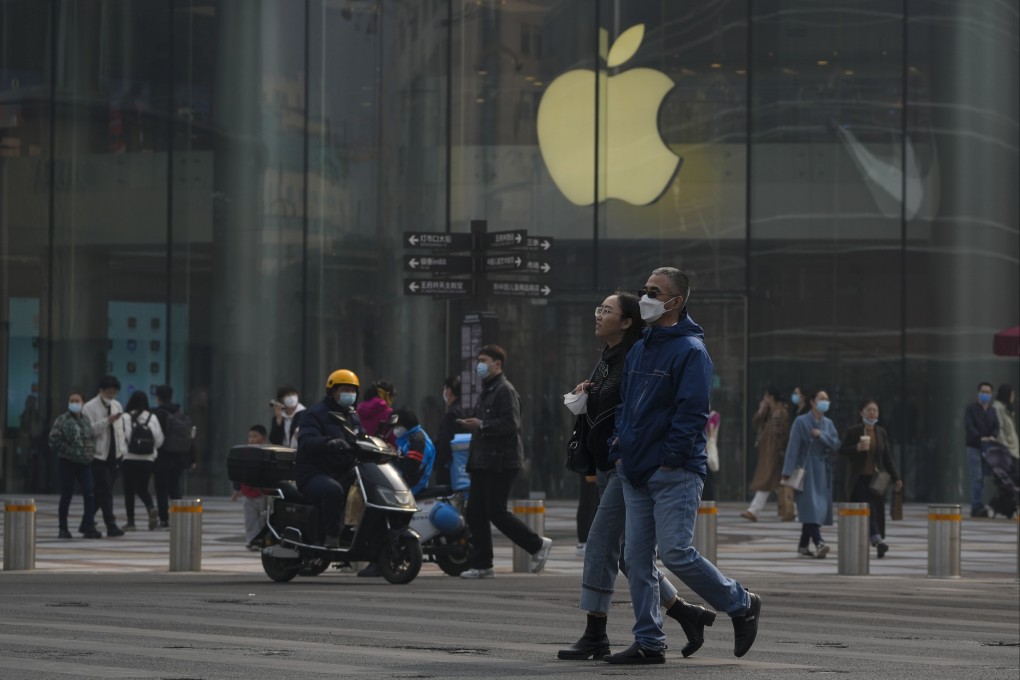Apple removes over a hundred ChatGPT-like apps in China as tighter regulations set to take effect
- The apps were all pulled off the shelves from China’s iOS app store on Tuesday
- The move comes as enthusiasm for generative AI remains high in China while Beijing seeks to ramp up scrutiny of the sector

Apple has removed more than a hundred apps offering ChatGPT-like services from its China store, as a regulation on generative artificial intelligence (AI) is set to take effect in the country in two weeks.
Spark reappeared in China’s iOS app store on Wednesday morning, after iFlytek said on an investor relations platform that the app had gone through an update.
Among the other apps pulled was the popular ChatGAi Plus, which provides chatbot, AI translation and writing services and was ranked 9th on the China iOS app store’s paid app chart before being removed on Tuesday afternoon, Qimai records show.
In a notification to developers, Apple said that it had removed the apps “because they include content that is illegal in China”, citing tighter regulations on deep synthesis technologies and generative AI, according to a screenshot shared by Zhenlu Zuo, a developer behind one of the removed AI apps OpenCat, on X - which was formerly called Twitter.